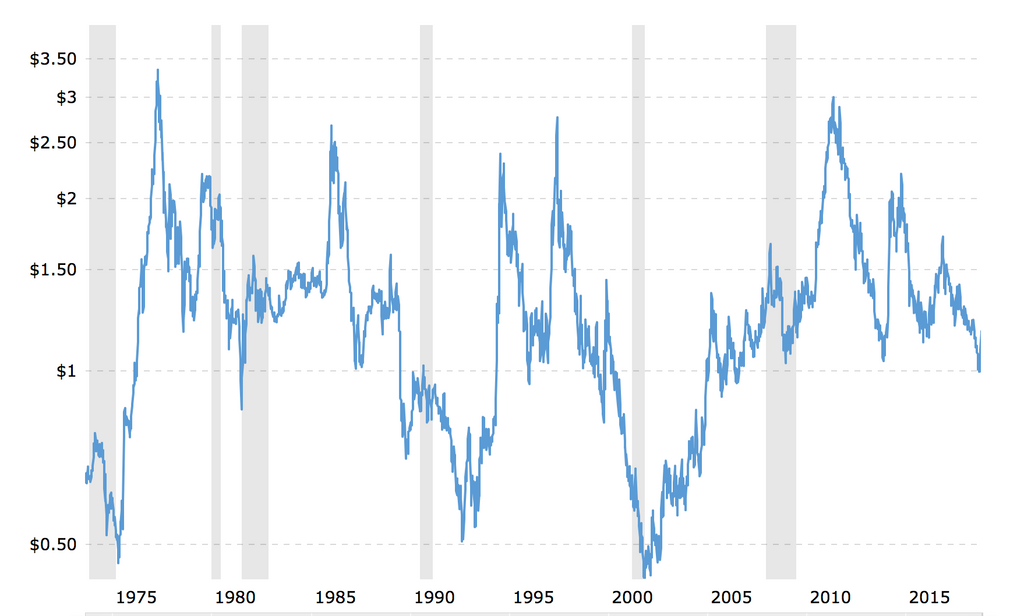
In 1982, the global commodity scale valued coffee at $1.30/pound. In 2018, that’s the equivalent of $3.41. But today that price is $1.17.
Market shifts are expected with any commodity. But in the case of coffee, the livelihoods of 25 million farming families are at stake. $1.17/pound does not cover the cost of coffee production any more than $10K would buy a brand new Jeep Wrangler today (like it did in 1982). Farmers are abandoning their farms in search of better jobs, or clear cutting coffee plants in favor of illicit but lucrative crops like coca.
The situation is so dire that a group of leaders representing coffee producers in 30 countries has written a letter to CEOs of large coffee corporations, acknowledging the many positive impacts of the coffee industry but ultimately urging action:
“A closer look [at the coffee supply chain] makes it very clear that some of the links are extremely profitable, while some others, in particular the farmers that produce the coffee, are doing so at a loss. The conclusion is obvious: this imbalance needs to be corrected and each and every link of the chain has to be profitable if we want to have a healthy and sustainable coffee industry. We are all co-responsible for the sustainability of the coffee industry, not only at the environmental and social levels, but at the economic one, that is, the livelihood of the farmers."
The letter continues, “Consumers are also a key part of the value chain. They do not know the current situation because it has not been informed to them. This is the time to engage them globally to explain why coffee is at risk, not just for threats such as climate change but, in a more immediate way, the lack of economic sustainability of millions of coffee growers who are paid today less than 1/3 the price of 1982. Poverty is the biggest predator of the environment and social fabric.”
By purchasing coffee through the importer that we co-own, Cooperative Coffees, Higher Grounds is committed to purchasing coffee at prices that are well above the minimum threshold. Premiums for organic and fair trade certification are helpful, but they are also not enough to ensure coffee production is actually profitable for farmers. Cooperative Coffees pays a minimum $2.20/pound (and often much higher) for all certified coffees we purchase, regardless of fluctuation in the C price. Through programs like Coop Coffees’ Impact Fund, Quality Improvement Fund, and other financing mechanisms, we’re able to support farmers so that they have the resources and tools needed to keep farming coffee, continually increasing quality and yields and earning even higher prices. Yes--we would love to pay even more. But if we want to stay in business and live out our values, consumers have to be on board too.
If we want to keep drinking delicious specialty coffee--if we value those precious sips--we need to be willing to pay for it and, as the farmers suggest in their letter, every link of the chain has to be profitable. Otherwise, truly, the coffee we know and love could disappear. If we want to claim we care about sustainability, we must also claim responsibility for the livelihoods of the farmers who are at the heart of our favorite beverage. Their lives must be sustainable too. We must share their stories, their reality, and we must be transparent about the way we do business from seed to cup.
This sure sounds like a manifesto. It is. It is a line in the sand, a mission stated. We must care for farmers. We must pay what coffee is worth, and the lives of 25 million farming families are at stake. We must vote with our dollars for the kind of world we'd like to live in, a world in which those responsible for our daily beverage are seeing at least as much benefit from it as we are. So don’t wait for that coffee from your favorite specialty roaster to go on sale. Just buy it. In most cases, even full price is not enough.
//
Author's note: Thank you to the writers at Daily Coffee News (Andrea Olivar, Nick Brown) for their recent posts that catalyzed this piece, and also to James Hoffman for raising important questions.
Jennifer Yeatts is Higher Grounds' director of coffee, a licensed Q grader and Authorized SCA Trainer. Want to share your thoughts? Email her directly at jennifer@highergroundstrading.com.
